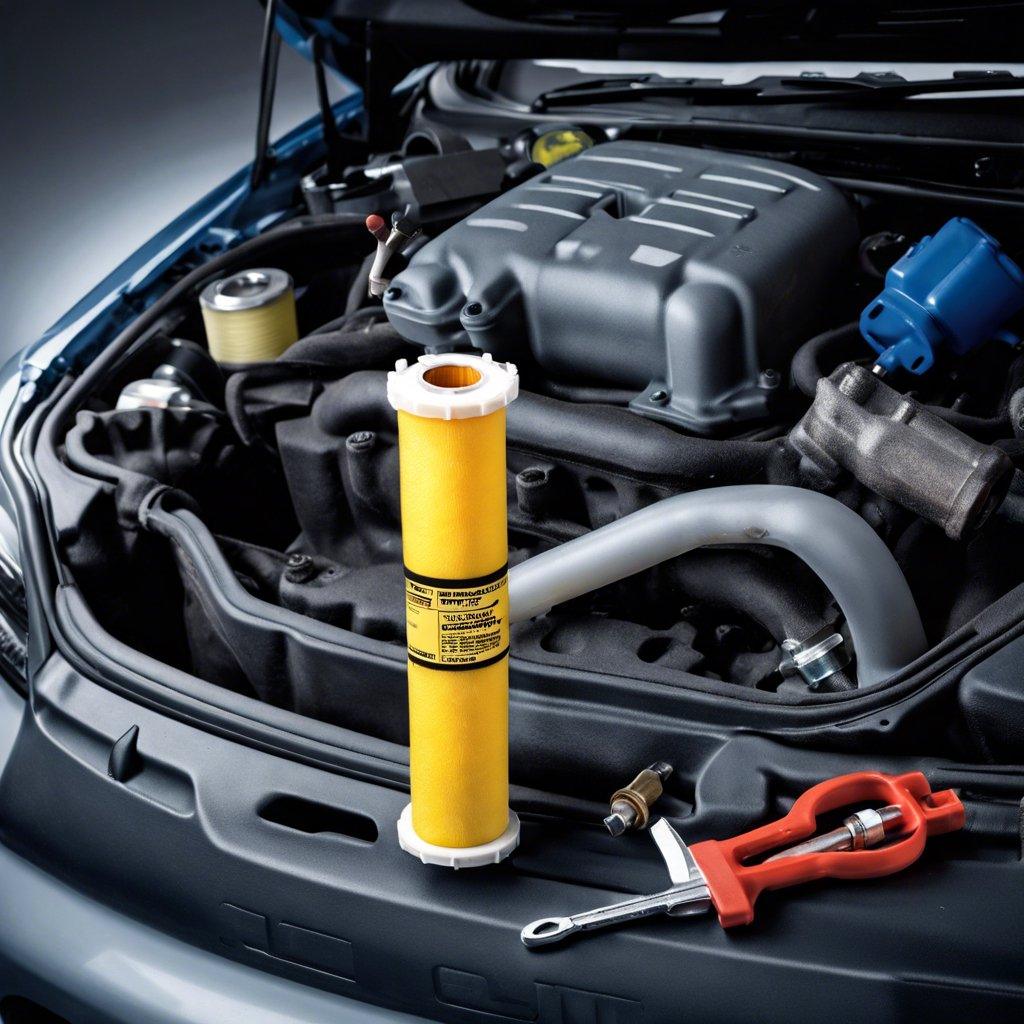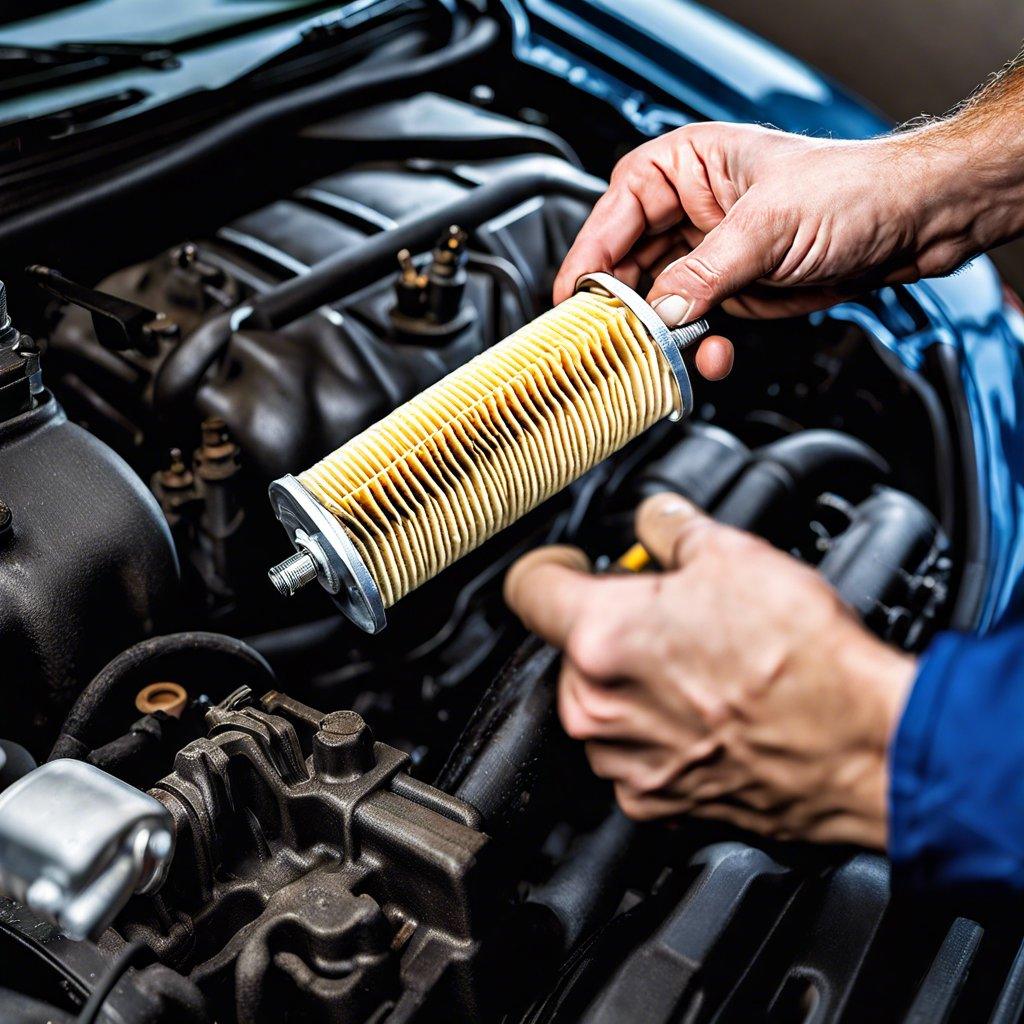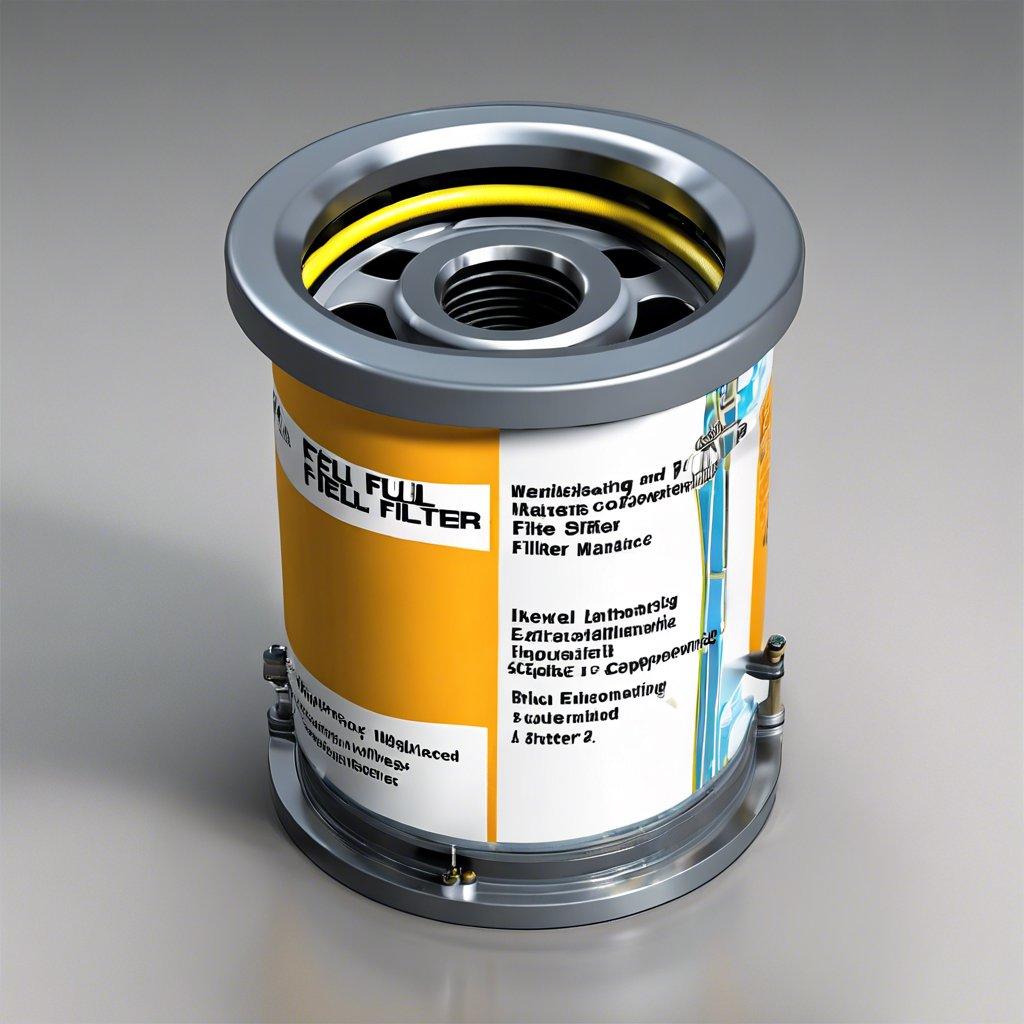The Right Time to Replace Your Fuel Filter
Unlocking the Key: When to Upgrade Your Vehicle’s Fuel Filter

Understanding the Importance of Fuel Filters
Fuel filters play a crucial role in ensuring the smooth and efficient operation of your vehicle’s engine. They are responsible for trapping contaminants, such as dirt, rust, and other impurities, before they can reach the delicate components of the fuel system. Keeping your fuel filter in good condition is essential for maintaining optimal engine performance and preventing costly repairs.
Recognizing the Signs of a Failing Fuel Filter
Identifying the right time to replace your fuel filter can be a challenge, but there are several telltale signs that indicate it’s time for an upgrade:
- Decreased Fuel Efficiency: If you notice a sudden drop in your vehicle’s fuel economy, it could be a sign that your fuel filter is clogged and restricting fuel flow.
- Difficulty Starting the Engine: A clogged fuel filter can make it harder for your engine to start, especially on cold mornings or after periods of inactivity.
- Rough Idling or Stalling: A malfunctioning fuel filter can cause your engine to run rough or stall unexpectedly, particularly at idle or during low-speed driving.
Determining the Recommended Replacement Interval
The recommended replacement interval for your fuel filter can vary depending on your vehicle’s make, model, and driving conditions. Consult your owner’s manual or a trusted mechanic to determine the appropriate replacement schedule for your specific vehicle. As a general guideline, most manufacturers recommend replacing the fuel filter every 30,000 to 50,000 miles or as part of your vehicle’s regular maintenance schedule.
The Benefits of Proactive Fuel Filter Replacement
Replacing your fuel filter at the recommended intervals can offer several benefits:
- Improved Fuel Efficiency: A clean fuel filter allows for better fuel flow, which can result in increased fuel efficiency and cost savings over time.
- Enhanced Engine Performance: A well-maintained fuel filter helps to ensure that your engine receives a consistent, uninterrupted supply of clean fuel, leading to improved power and responsiveness.
- Reduced Risk of Costly Repairs: Neglecting to replace your fuel filter can lead to the buildup of contaminants, potentially damaging sensitive fuel system components and requiring expensive repairs.
Upgrading your vehicle’s fuel filter at the right time is a crucial part of maintaining its overall health and performance. By recognizing the signs of a failing filter and following the recommended replacement schedule, you can ensure that your engine continues to run at its best, while avoiding the potential for costly repairs down the road.
Fuel Filter Replacement: The Roadmap to Optimized Engine Performance
Understanding the Importance of Fuel Filter Replacement
The fuel filter plays a crucial role in maintaining the overall health and efficiency of your vehicle’s engine. As the name suggests, this essential component filters out impurities, contaminants, and debris from the fuel, ensuring a clean and uninterrupted fuel supply to the engine. Neglecting to replace the fuel filter at the recommended intervals can lead to a host of issues, including decreased fuel economy, reduced engine power, and even potential damage to the fuel system components.
Identifying the Right Time for Fuel Filter Replacement
The optimal time to replace the fuel filter depends on several factors, including the vehicle’s make, model, and driving conditions. Manufacturers typically recommend replacing the fuel filter every 30,000 to 60,000 miles, or at intervals specified in the owner’s manual. However, in some cases, the filter may need to be replaced more frequently, especially if the vehicle is operated in harsh environments or experiences frequent towing or hauling.
Signs That Your Fuel Filter Needs Replacement
- Decreased Fuel Efficiency: If you’ve noticed a gradual decline in your vehicle’s fuel economy, a clogged fuel filter could be the culprit.
- Reduced Engine Power: A partially or fully blocked fuel filter can restrict the flow of fuel, leading to a noticeable decrease in engine power and performance.
- Engine Stalling or Hesitation: A malfunctioning fuel filter can cause the engine to stall or hesitate during acceleration, particularly at higher speeds.
- Difficulty Starting the Engine: A clogged fuel filter can make it challenging to start the engine, especially when the vehicle has been sitting for an extended period.
Preparing for Fuel Filter Replacement
Before attempting to replace the fuel filter, it’s crucial to consult the vehicle’s owner’s manual or seek guidance from a qualified automotive technician. The replacement process can vary depending on the make and model of the vehicle, and improper handling of the fuel system can lead to dangerous consequences.
The Benefits of Timely Fuel Filter Replacement
By replacing the fuel filter at the recommended intervals, you can enjoy the following benefits:
- Improved Fuel Efficiency: A clean fuel filter ensures a smooth and uninterrupted flow of fuel, leading to better fuel economy and reduced fuel consumption.
- Enhanced Engine Performance: With a properly functioning fuel filter, the engine can operate at its optimal efficiency, delivering more power and responsiveness.
- Extended Engine Lifespan: Protecting the fuel system components from contaminants helps to prevent premature wear and tear, extending the overall lifespan of the engine.
- Reduced Maintenance Costs: Proactive fuel filter replacement can help you avoid costly repairs and breakdowns down the line, saving you money in the long run.
Maintaining the health of your vehicle’s fuel system is essential for optimal engine performance and longevity. By understanding the importance of timely fuel filter replacement and recognizing the signs that it’s time for a change, you can take proactive steps to ensure your engine runs at its best. Remember to consult your owner’s manual or a qualified automotive technician to ensure the replacement process is carried out safely and effectively.
Mastering the Fuel Filter: Ensuring Seamless Driving Experiences
Understanding the Role of the Fuel Filter
The fuel filter is a crucial component in your vehicle’s fuel system, responsible for trapping dirt, debris, and other contaminants that could potentially damage the delicate components of your engine. As fuel travels from the tank to the engine, the filter works tirelessly to ensure a clean and consistent fuel supply, maintaining the optimal performance of your vehicle.
Neglecting the maintenance of your fuel filter can lead to a range of issues, including reduced fuel efficiency, decreased engine power, and even complete engine failure. Some common signs that indicate it’s time to replace your fuel filter include:
- Decreased Fuel Efficiency: If you’ve noticed a sudden drop in your vehicle’s miles per gallon (MPG), it could be a sign that your fuel filter is clogged and restricting fuel flow.
- Difficulty Starting the Engine: A clogged fuel filter can make it harder for your engine to start, as it struggles to draw the necessary fuel.
- Hesitation or Stalling: When the fuel filter is obstructed, your engine may experience hesitation or stalling, particularly during acceleration or under heavy load.
Determining the Right Time to Replace the Fuel Filter
Most manufacturers recommend replacing the fuel filter at regular intervals, typically every 30,000 to 50,000 miles, or as specified in your vehicle’s maintenance schedule. However, it’s essential to monitor your vehicle’s performance and adjust the replacement schedule accordingly. Factors such as driving conditions, fuel quality, and the age of your vehicle can all impact the lifespan of your fuel filter.
The Importance of Professional Fuel Filter Replacement
Replacing the fuel filter is a straightforward task, but it’s crucial to follow the proper procedures to ensure the job is done correctly. Attempting to replace the filter without the necessary knowledge and tools can lead to further damage to your vehicle’s fuel system. It’s recommended to have a qualified technician handle the fuel filter replacement to ensure the job is done safely and effectively.
Maintaining a Healthy Fuel System
Regularly replacing your fuel filter is just one aspect of maintaining a healthy fuel system. Other important steps include using high-quality fuel, keeping your fuel tank filled to prevent the buildup of condensation, and addressing any fuel-related issues promptly. By taking a proactive approach to fuel system maintenance, you can enjoy a smooth, reliable, and efficient driving experience for the long haul.
| Fuel Filter Replacement Interval | Recommended Mileage |
|---|---|
| Typical Replacement Interval | 30,000 to 50,000 miles |
| Severe Driving Conditions | Every 20,000 miles |
Remember, the key to ensuring a seamless driving experience is to stay vigilant and proactive when it comes to fuel system maintenance. By mastering the fuel filter replacement process, you can keep your vehicle running at its best, mile after mile.
Fuel Filter Maintenance: The Cornerstone of Reliable Vehicle Operation
Importance of Fuel Filter Maintenance
The fuel filter is a vital component in the operation of any vehicle. It plays a crucial role in ensuring the smooth and efficient performance of the engine by removing impurities and contaminants from the fuel. Proper maintenance of the fuel filter is essential to maintain the reliability and longevity of your vehicle.
Understanding Fuel Filter Function
The fuel filter is responsible for trapping and removing dirt, debris, and other particles from the fuel before it reaches the engine. This helps to prevent these contaminants from causing damage to the fuel system components, such as the fuel pump, injectors, and the engine itself.
When to Replace the Fuel Filter
The recommended replacement interval for the fuel filter can vary depending on the vehicle manufacturer’s specifications and the driving conditions. As a general guideline, it is recommended to replace the fuel filter every 30,000 to 50,000 miles or as specified in the vehicle’s maintenance schedule.
Signs of a Clogged Fuel Filter
- Decreased fuel efficiency
- Difficulty starting the engine
- Hesitation or stalling during acceleration
- Increased engine noise or vibration
Fuel Filter Replacement Procedure
Replacing the fuel filter is a straightforward process, but it is essential to follow the manufacturer’s instructions and use the correct replacement filter. Failure to do so can lead to additional issues or even damage to the fuel system.
| Step | Description |
|---|---|
| 1 | Locate the fuel filter, typically located near the fuel tank or along the fuel line. |
| 2 | Disconnect the fuel lines from the filter, taking care to avoid spilling fuel. |
| 3 | Remove the old fuel filter and install the new one, ensuring a secure connection. |
| 4 | Reconnect the fuel lines and check for any leaks. |
| 5 | Start the engine and inspect the filter for any signs of leakage. |
Maintaining the fuel filter is a critical aspect of vehicle maintenance. Regular replacement of the fuel filter helps to ensure the reliability and longevity of your vehicle’s fuel system, ultimately contributing to a smoother and more efficient driving experience.




Post Comment